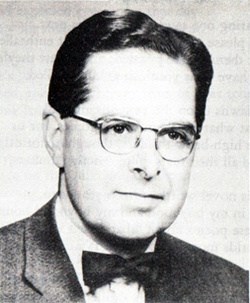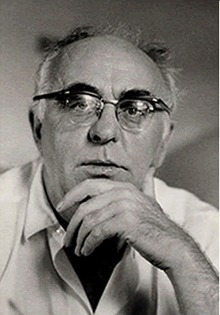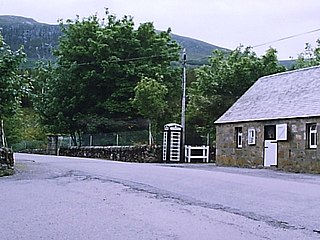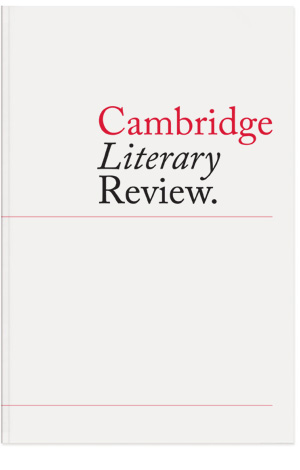Related Research Articles

Donald Alfred Davie, FBA was an English Movement poet, and literary critic. His poems in general are philosophical and abstract, but often evoke various landscapes.
The Objectivist poets were a loose-knit group of second-generation Modernists who emerged in the 1930s. They were mainly American and were influenced by, among others, Ezra Pound and William Carlos Williams. The basic tenets of objectivist poetics as defined by Louis Zukofsky were to treat the poem as an object, and to emphasize sincerity, intelligence, and the poet's ability to look clearly at the world. While the name of the group is similar to Ayn Rand's school of philosophy, the two movements are not affiliated.

Charles Olson was a second generation modernist American poet who was a link between earlier modernist figures such as Ezra Pound and William Carlos Williams and the third generation modernist New American poets. The latter includes the New York School, the Black Mountain School, and some of the artists and poets associated with the Beat generation and the San Francisco Renaissance.

The Black Mountain poets, also called projectivist poets, were a group of mid-20th-century American avant-garde or postmodern poets based at Black Mountain College in North Carolina.
The British Poetry Revival is the general name now given to a loose movement in the United Kingdom that took place in the late 1960s and 1970s. The term was a neologism first used in 1964, postulating a New British Poetry to match the anthology The New American Poetry (1960) edited by Donald Allen.

Edward Merton Dorn was an American poet and teacher often associated with the Black Mountain poets. His most famous work is Gunslinger.
Jeremy Halvard Prynne is a British poet closely associated with the British Poetry Revival.
Andrew Thomas Knights Crozier was a poet associated with the British Poetry Revival.
Conductors of Chaos: A Poetry Anthology is a poetry anthology edited by Iain Sinclair, and published in the United Kingdom in 1996 by Picador.
Barry MacSweeney was an English poet and journalist. His organizing work contributed to the British Poetry Revival.
Modernist poetry refers to poetry written between 1890 and 1950 in the tradition of modernist literature, but the dates of the term depend upon a number of factors, including the nation of origin, the particular school in question, and the biases of the critic setting the dates. The critic/poet C. H. Sisson observed in his essay Poetry and Sincerity that "Modernity has been going on for a long time. Not within living memory has there ever been a day when young writers were not coming up, in a threat of iconoclasm."

John Joseph Wieners was an American poet.

Iain Crichton Smith, was a Scottish poet and novelist, who wrote in both English and Gaelic. He was born in Glasgow, but moved to the Isle of Lewis at the age of two, where he and his two brothers were brought up by their widowed mother in the small crofting town of Bayble, which also produced Derick Thomson. Educated at the University of Aberdeen, Crichton Smith took a degree in English, and after completing his national service in the Army Educational Corps, went on to become a teacher. He taught in Clydebank, Dumbarton and Oban from 1952, retiring to become a full-time writer in 1977, although he already had many novels and poems published.

The Harvard Advocate, the art and literary magazine of Harvard College, is the oldest continuously published college art and literary magazine in the United States. The magazine was founded by Charles S. Gage and William G. Peckham in 1866 and, except for a hiatus during the last years of World War II, has published continuously since then. In 1916, The New York Times published a commemoration of the Advocate's fiftieth anniversary. Fifty years after that, Donald Hall wrote in The New York Times Book Review: "In the world of the college—where every generation is born, grows old and dies in four years—it is rare for an institution to survive a decade, much less a century. Yet the Harvard Advocate, the venerable undergraduate literary magazine, celebrated its centennial this month." Its current offices are a two-story wood-frame house at 21 South Street, near Harvard Square and the university campus.

Achfary is a hamlet in the Scottish council area of Highland. To the east of the village lies Loch nan Ealachan.

Elaine Feinstein FRSL was an English poet, novelist, short-story writer, playwright, biographer and translator. She joined the Council of the Royal Society of Literature in 2007.
Bloodaxe Books is a British publishing house specializing in poetry.
Arthur Peter Riley is a contemporary English poet, essayist, and editor. Riley is known as a Cambridge poet, part of the group loosely associated with J. H. Prynne which today is acknowledged as an important center of innovative poetry in the United Kingdom. Riley was an editor and major contributor to The English Intelligencer. He is the author of ten books of poetry, and many small-press booklets. He is also the current poetry editor of the Fortnightly Review and a recipient of the Cholmondeley Award in 2012 for "achievement and distinction in poetry".

The Cambridge Literary Review (CLR) is a literary magazine published on an occasional basis. It is edited by Lydia Wilson, Rosie Šnajdr, Jocelyn Betts and Paige Smeaton and is run from Trinity Hall college at the University of Cambridge in England. It was founded in 2009 by Boris Jardine and Lydia Wilson with assistance from the University's 800th anniversary fund. It publishes poetry, short fiction and criticism, and although its commitment to experimental and often difficult works is influenced by the 'Cambridge School' of poetry it has included contributions by writers from around the world and in many languages. It has received notice in The Times Literary Supplement.
Stephen Collis is a Canadian poet and professor. Collis is the author of several books of poetry, including On the Material and three parts of the on-going “Barricades Project”: Anarchive, The Commons, and To the Barricades. He is also the author of three books of non-fiction: Almost Islands: Phyllis Webb and the Pursuit of the Unwritten , Dispatches from the Occupation, and Phyllis Webb and the Common Good. In 2011, he won the Dorothy Livesay Poetry Prize for the collection On the Material. In 2019, he won the Latner Writers' Trust Poetry Prize. He wrote Mine in 2001, Anarchive in 2005 and The Commons in 2008, and was previously shortlisted for the Dorothy Livesay Award in 2006 for Anarchive. He teaches poetry and American literature at Simon Fraser University.
References
- ↑ Neil Pattison, "Introduction." Certain Prose of the English Intelligencer (2014)
- ↑ Eltringham, Daniel (2022). Poetry & Commons: Postwar and Romantic Lyric in Times of Enclosure. Liverpool University Press. p. 59.
- 1 2 3 Eltringham 2022, p. 62.
- ↑ Eltringham 2022, pp. 65–6.
- ↑ English Intelligencer Archive
- 1 2 Eltringham 2022, p. 60.
- ↑ Eltringham 2022, p. 76.
- ↑ Eltringham 2022, p. 64.
- 1 2 3 4 Eltringham 2022, p. 63.
- ↑ Eltringham 2022, pp. 83–4.